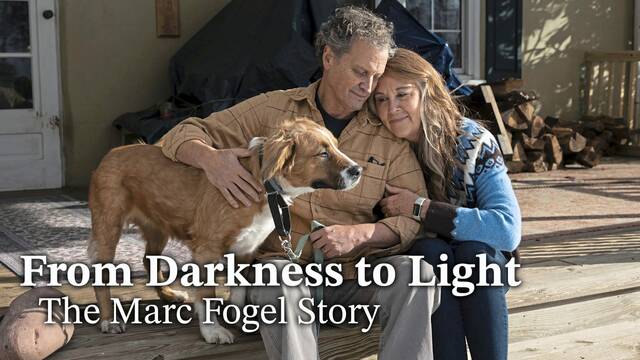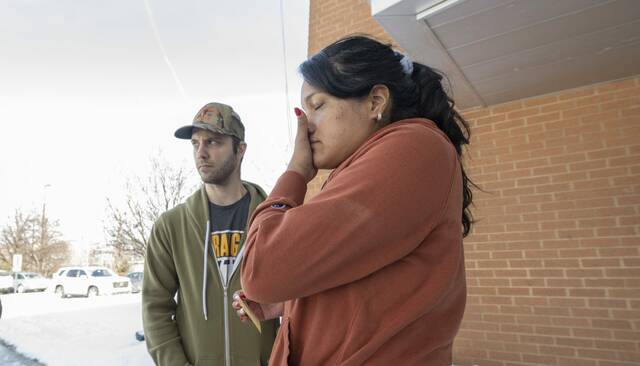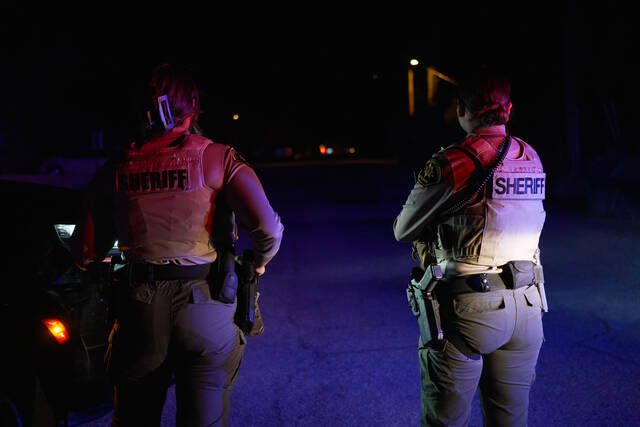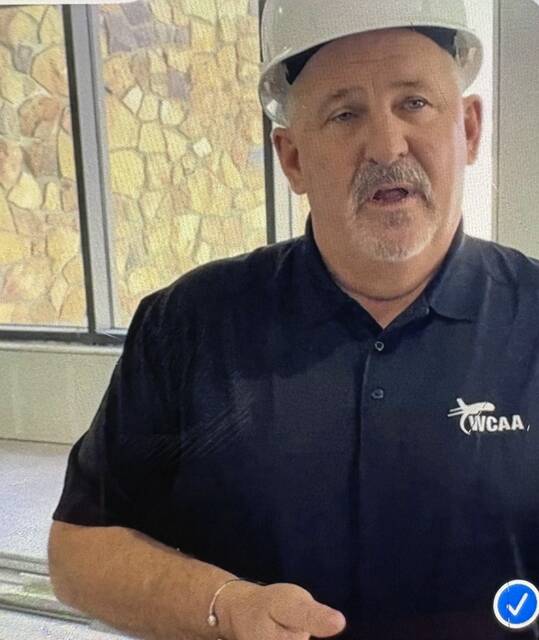Antisemitic statements made by the man accused of killing 11 people at a Squirrel Hill synagogue three years ago can be used against him at trial.
In a 32-page opinion issued Thursday, Senior U.S. District Judge Donetta Ambrose denied a motion by Robert Bowers to suppress statements that he made as he was being taken into custody by police, inside an ambulance, and at the hospital the day of the attack.
Defense attorneys argued that statements Bowers made the morning of Oct. 27, 2018, could not be used by the prosecution because officers violated his right to remain silent by questioning him.
And while Ambrose agreed with the defense that at the time Bowers made the statements he was in police custody, she also found that each statement falls under the public safety exception to the Miranda warning.
“The questions posed by the SWAT officers were designed to ensure the safety of the officers and the public rather than to elicit incriminating answers,” she wrote.
Bowers is charged in federal court with more than five dozen counts, including committing a hate crime resulting in death. The government is seeking the death penalty. Earlier this week, the defense filed a motion seeking a change of venue because of pretrial publicity in the Pittsburgh region.
In October, Ambrose held a two-day evidentiary hearing on Bowers’ motion to suppress during which several Pittsburgh police officers and medical personnel testified about what happened the morning of Oct. 27, 2018.
Testimony from the hearing asserted that Bowers entered the synagogue armed with an AR-15 rifle and three handguns.
For more than an hour that day, officers searched the building that housed the Tree of Life-Or L’Simcha, Dor Hadash and New Light congregations, looking for the suspect.
It was clear from testimony, Ambrose said, there was an imminent threat to the safety of responding officers and the public.
“The threat posed was so great that calls for ‘every available unit in the city’ were made, and surrounding roads were closed,” the judge wrote.
Throughout her opinion, Ambrose detailed the scene, including how chaotic and dangerous it was for responding officers.
It was just after 11 a.m., Officer Clint Thimons testified, that he began negotiating with a wounded Bowers to crawl out of a classroom and surrender, telling him “‘Crawl out or you will die.’”
During that exchange, Thimons asked Bowers why he did it.
Bowers responded that “ ‘he’s had enough, that Jews are killing our children, and he couldn’t take it anymore, that all Jews had to die.’ ”
In his testimony, Thimons said that he was trying to keep Bowers focused on him and alert when he asked the question, but that he was also trying to understand the scope of the attack.
“I find credible testimony that SWAT’s focus was not on obtaining a statement or conducting an interrogation,” Ambrose wrote in her opinion.
The judge agreed with the defense that by that point Bowers was in custody.
“Bowers was surrounded and had no means of egress other than past armed officers,” Ambrose wrote. “As such, I think it clear, under these circumstances, that, although he was not formally under arrest at this point, a ‘reasonable man’ in Bowers’ situation would not have believed he was free to leave.”
In addition, Ambrose wrote that she believed asking Bowers why he did it amounted to being interrogated.
Traditionally, under Miranda then, Ambrose wrote, the statements should be suppressed.
But because of the public safety exception to Miranda — and because some of the statements Bowers made voluntarily — Ambrose continued, they were admissible.
“The responding officers were at significant risk as were those congregants still hiding in the synagogue. Indeed, at least three officers were wounded during their response to Tree of Life,” she wrote. “To ensure the safety of the officers at the scene and the surrounding community, they needed information about the quantity and location of firearms, whether any explosive devices had been placed at the synagogue or elsewhere, and whether Bowers acted alone or with collaborators or accomplices as part of a larger attack.
“The questions posed were not investigatory in nature or sought for the purpose of eliciting testimonial evidence. Rather, each question furthered the goal of ensuring safety.”
In the opinion, Ambrose also commended the law enforcement response that day.
“Those who responded to the scene did so with a remarkable amount of selflessness and bravery,” she wrote. “That those individuals were able to maintain their composure and act with such professionalism in the face of what they encountered is a testament to their training and character. The City of Pittsburgh and surrounding region are fortunate to have had them on site that day.”








